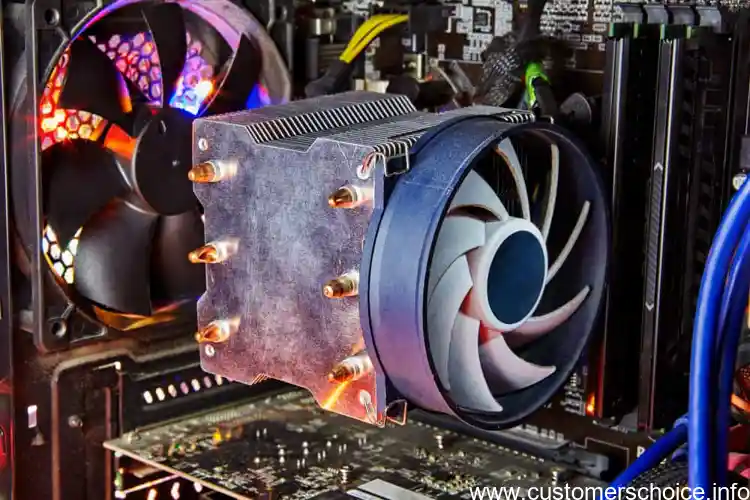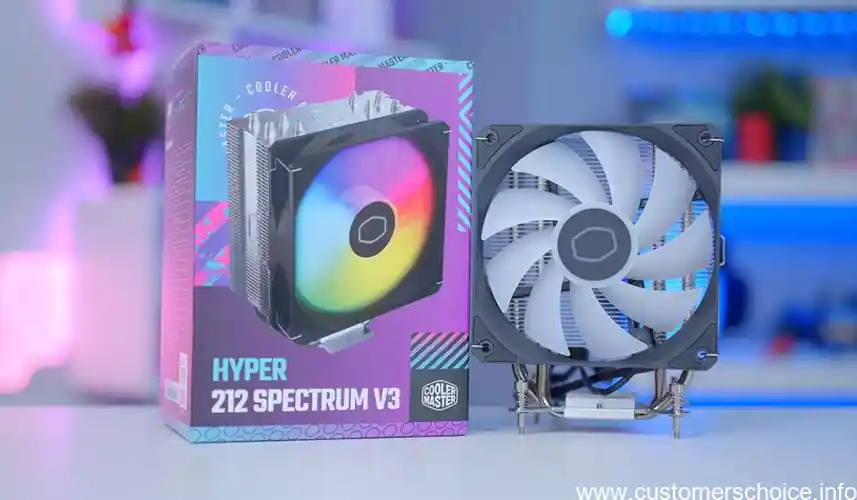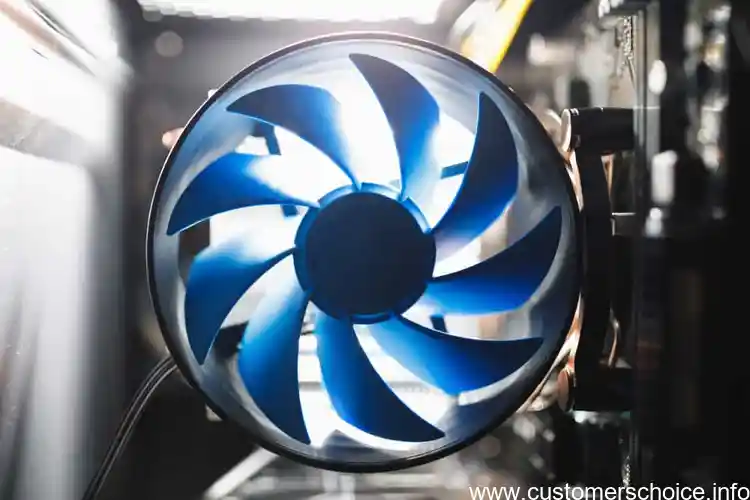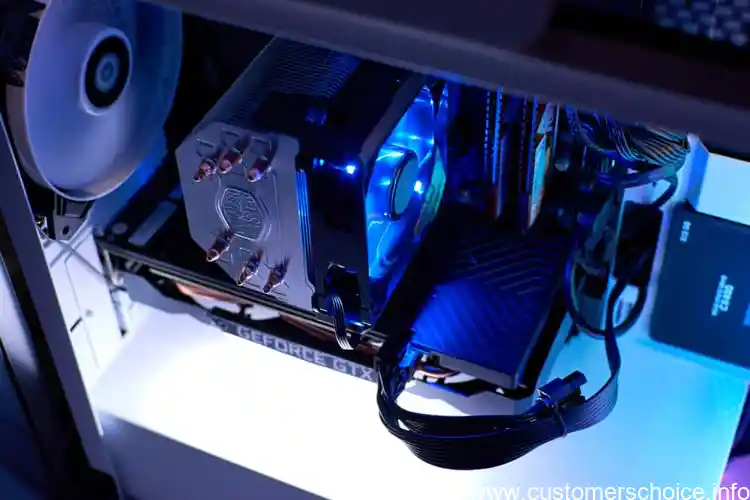As a PC builder or enthusiast, one of the crucial components that you need to consider is the CPU cooler. A good cooler ensures the longevity and optimal performance of your CPU. However, with numerous types and brands available, choosing the right one can be overwhelming. In this article, we will dive into the world of CPU coolers, exploring the different types, socket compatibility, performance factors, and tips for installation and maintenance. Whether you have an AMD or Intel processor, a limited budget, or specific preferences, we’ll help you find the perfect cooler for your build. Let’s get started!
Understanding CPU Coolers: Types, Compatibility, and Performance

If you’re looking to build your own PC or upgrade an existing one, it’s important to choose a compatible and efficient CPU cooler. How do you know what CPU cooler you can use? There are dozens, if not hundreds, of CPU coolers available on the market today. Each CPU cooler is designed to fit specific socket types and CPU brands, so it’s important to do your research and choose a CPU cooler that is compatible with your system. One popular way to check CPU compatibility is by using tools like CPU-Z or HWMonitor. These software programs allow you to see detailed information about your CPU, including its socket type. Once you know the socket type, you can narrow down your search for compatible CPU coolers. Another option is to ask for recommendations on forums like Reddit or tech websites like Tom’s Hardware. Whether you’re considering an air or liquid cooler, brands like Noctua, Cooler Master, and Corsair offer a range of options to suit your needs. Consider factors like thermal design power, noise level, and RGB customization when choosing the right CPU cooler for your build.
Air coolers vs liquid coolers: Which is better for your CPU?
If you’re new to building PCs, or even if you’re a seasoned veteran, figuring out which CPU cooler you can use can be a daunting task. With so many options on the market and constant updates and releases from CPU manufacturers, it can be overwhelming to sort through all the information out there. But fear not! Understanding CPU coolers is not as difficult as it seems. One of the first things you’ll want to look at is socket compatibility, which refers to the shape and layout of your CPU’s contact points. Once you’ve figured that out, you’ll need to think about whether you want an air or liquid cooler and how much thermal design power (TDP) you need to keep your CPU running at peak performance. Additionally, noise level and RGB customization options can play a role in your decision-making process. With so many factors to consider, it can be helpful to read up on reviews and recommendations from trusted sources like Reddit, Tom’s Hardware, and TechWhoop before making your final decision.
Socket compatibility: Making sure your CPU cooler fits your CPU
Choosing the right CPU cooler for your system can be confusing, especially if you’re not familiar with the different types and compatibility requirements. However, by understanding your CPU’s thermal design power (TDP) and cooling requirements, you can determine what type of cooler you need. Additionally, considering noise level and the option of RGB or non-RGB coolers can personalize your build to fit your preferences. When selecting a CPU cooler, it’s crucial to ensure that it fits your CPU socket and offers adequate cooling performance. Comparing air coolers and liquid coolers can help you decide which option best suits your needs. By doing thorough research and understanding the factors that impact CPU cooling, you can confidently choose the right CPU cooler to keep your system running efficiently.
Cooling performance: What to consider when choosing a CPU cooler
When it comes to choosing a CPU cooler, the most important factor to consider is compatibility. You’ll need to make sure that the cooler you select is designed to fit your CPU’s socket and TDP requirements. For instance, a cooler that fits a 1150 socket won’t necessarily fit a 2066 socket, and a cooler with a low TDP rating may not be able to keep up with a high-end processor like the AMD Ryzen 9 9600X. Additionally, you’ll want to evaluate different types of coolers and their features to determine which one is the right fit for your specific needs. Air coolers are a popular choice for their quiet operation, budget-friendliness, and reliability, while liquid coolers provide excellent cooling performance but can be more complicated to install and maintain. Ultimately, by taking the time to research and evaluate your options, you’ll be able to select a CPU cooler that delivers reliable, efficient, and effective cooling for your build.
Top CPU Coolers for Different CPUs: An Overview

If you’re looking for the perfect CPU cooler for your PC build, it’s important to understand the different options available to you. There are dozens of CPU coolers on the market, from high-end liquid cooling systems to budget-friendly air coolers, each with its own strengths and weaknesses. Knowing what you’re looking for in a cooler can help you narrow down your options and make a more informed decision. Factors like compatibility, TDP, noise levels, and cooling performance should all be taken into consideration when choosing the right CPU cooler for your system. For example, if you’re an AMD Ryzen user, you might want to consider coolers like Noctua or Cooler Master, which are known for their great compatibility with Ryzen CPUs. Ultimately, finding the right CPU cooler comes down to evaluating your personal needs, budget, and preferences. With the right information, you can choose a cooler that will keep your CPU running at peak performance without breaking the bank.
Best CPU coolers for AMD Ryzen processors
Choosing the right CPU cooler for your build can seem overwhelming, but it doesn’t have to be. When looking for the best cooler for your CPU, first consider the type of CPU you have and its specific cooling requirements. For AMD Ryzen processors, popular options include the Noctua NH-D15 and Cooler Master MasterAir MA620M. For Intel CPUs, specific options vary based on the LGA socket, but some popular choices are the Noctua NH-D15S and Corsair H100i RGB Platinum SE for LGA 1151 and the Cooler Master MasterLiquid ML360R RGB for LGA 2066. If you’re looking for a budget-friendly option that still performs well, the Cooler Master Hyper 212 or Arctic Freezer 34 eSports Duo are great options. It’s also important to consider factors like noise level, RGB features, and socket compatibility before making your final decision. By taking these factors into account, you can confidently choose a CPU cooler that will keep your CPU running cool and stable every day.
Top picks for Intel CPUs: LGA 1151, LGA 1155, and LGA 2066
Are you wondering how to choose the right CPU cooler for your build? There are dozens, if not hundreds of coolers to choose from these days, making it easy to feel overwhelmed. One of the first things to consider is compatibility with your CPU socket, such as LGA 115x or LGA 2066 for Intel, or AM4 or sTRX4 for AMD Ryzen processors. You also need to think about your cooling needs and budget. A budget-friendly option like the Cooler Master Hyper 212 might work for an entry-level build, but more powerful processors like a Ryzen 9 9600X require more cooling power, possibly an AIO liquid cooler like the Corsair H100i or the Noctua NH-D15 air cooler. You can also consider factors like noise level, RGB lighting, and the size of the cooler, which can vary from compact 120mm or 140mm units to large 280mm or 360mm CLC liquid coolers. Take your time to read up on reviews, benchmarks, and recommendations from sites like Tom’s Hardware, Reddit, and TechWhoop to make the best choice for your hardware and usage needs.
Budget-friendly CPU coolers that get the job done
When it comes to choosing the best CPU cooler for your build, compatibility is key. You don’t want to spend money on a cooler only to realize it doesn’t fit your CPU socket. The good news is that there are many top-quality coolers on the market that are specifically designed to work with different CPUs. For AMD Ryzen processors, the Noctua NH-D15 is a popular choice among users, providing excellent cooling performance with its dual-tower design. For Intel CPUs, Cooler Master’s Hyper 212 is a reliable and affordable option for LGA 1151, LGA 1155, and LGA 2066 sockets. If you’re on a budget, the Arctic Freezer 34 is a budget-friendly option that gets the job done. Ultimately, it all comes down to determining your cooling needs and budget, evaluating different types of coolers and their features, and finding the right fit for your specific CPU.
Factors to Consider when Choosing a CPU Cooler

When it comes to choosing a CPU cooler, there are a few important factors you need to consider to ensure the best performance. One of the first things to take into account is compatibility with your specific CPU model. Before purchasing any cooler, double-check that it is the correct fit for your device. You can find this information by looking up your CPU’s socket type or model number online or using specialized software like HWMonitor.
Next, consider the thermal design power (TDP) requirements of your CPU, as this will inform the cooling capacity needed for your device. A higher TDP CPU may require a more powerful cooler to prevent overheating. Additionally, take into account noise levels and the level of customization you desire, as these can vary widely among different CPU coolers.
In terms of options, there are two main types of CPU coolers: air and liquid. Each has its own advantages and drawbacks, so you’ll want to do some research and consider your specific needs before deciding. Some popular brands and models of CPU coolers include Noctua, Cooler Master, Corsair, and be quiet!. Ultimately, the best CPU cooler for you will depend on a variety of factors, from your specific device and performance needs to your budget and personal preferences.
Thermal design power (TDP) and CPU cooling requirements
When choosing a CPU cooler, it’s important to consider the thermal design power (TDP) and cooling requirements of your CPU. Most CPUs come with a specified TDP rating that indicates how much heat they can generate and dissipate efficiently. You can find this information in your CPU specifications. Depending on your usage, you might need a more robust cooler for higher-end CPUs like Intel Core i9 and AMD Ryzen 9, or a more modest option for lower-end processors.
Another consideration is noise level. Cooling performance is important, but a noisy cooler can ruin your experience and disrupt others around you. Thankfully, most manufacturers include noise level in their product specifications, making it easy to compare models. Alternatively, you could also check out online forums like Reddit and TechWhoop, or hardware review sites like Tom’s Hardware. They often provide helpful insights and opinions from experienced users.
RGB is a popular feature among gaming enthusiasts, but it’s purely aesthetic. If you prefer it, that’s great. But it won’t improve or harm the cooling performance. Besides, most coolers come in either RGB or non-RGB variants, giving you the flexibility to choose based on your preferences.
Ultimately, the key to choosing the right CPU cooler is understanding your needs, budget, and usage. Do your research, consider the options, and go for a brand you trust, like Noctua, Cooler Master, Corsair, and more. There are dozens of great coolers out there, including air and liquid coolers, AIO and custom loop options, and 120mm, 140mm, 240mm, 280mm, and 360mm sizes. With over 250 million CPUs sold every day, there’s always a suitable option out there for you.
Noise level: Finding a balance between cooling power and quiet operation
When it comes to choosing a CPU cooler, there are a few key factors to consider. Firstly, you need to think about the thermal design power (TDP) of your CPU. This will give you an idea of the level of cooling required for your CPU to run effectively. You can find the TDP in your CPU specifications, and many cooling solutions will be rated based on their TDP capabilities. Secondly, you need to consider noise level. While powerful cooling is important, you don’t want your CPU cooler to sound like a jet engine. Look for cooling solutions with a low decibel rating if you’re sensitive to noise. Finally, you may want to consider personalizing your build with an RGB CPU cooler. RGB coolers have become increasingly popular over the past few years, allowing you to create a customized lighting effect. Remember to weigh up your needs and budget when selecting your CPU cooler, and always ensure that it’s compatible with your CPU socket type.
RGB or non-RGB CPU coolers? Personalizing your build
When it comes to choosing a CPU cooler, there are a few key factors to consider to ensure you get the best possible performance for your setup. First and foremost, you need to know what type of CPU cooler your specific processor can use. For example, some CPUs may be compatible with only air coolers, while others can accommodate both air and liquid options. Once you have determined compatibility, you will want to think about things like thermal design power (TDP) requirements and noise level preferences. Some users may prioritize cooling power over quiet operation, while others may want a balance between the two. Additionally, if personalization is important to you, you can choose between RGB and non-RGB coolers from a variety of reputable brands like Noctua, Cooler Master, and Corsair. By evaluating all of these factors, you can make an informed decision on the right CPU cooler to meet your needs.
Installation and Maintenance: Tips and Tricks

When it comes to selecting a CPU cooler, many people wonder, “How do I know what CPU cooler I can use?” There are several factors to consider, such as compatibility with your specific CPU socket, thermal design power (TDP), and noise level preferences. To find out what CPU cooler is best for you, you can consult manufacturer websites or user forums like Reddit or Overclockers, where people share their experiences with various coolers and offer advice. Additionally, there are software tools available, such as HWMonitor, which can help you monitor your CPU’s temperature and determine how well your current cooler is working. Maintenance is also important in ensuring that your CPU cooler functions properly. Regular cleaning and dusting can help to improve the longevity of your cooler and keep your CPU running smoothly. Overall, doing your research and being mindful of these factors will help you choose the best CPU cooler for your needs.
How to install a CPU cooler: Step-by-step guide
When it comes to choosing and installing a CPU cooler, there are some tips and tricks to keep in mind. First and foremost, it’s important to know what CPU cooler is compatible with your specific CPU. You can typically find this information in the CPU’s specifications, and it’s important to double-check before making a purchase. Once you have the right cooler, installation is key. Following a step-by-step guide and avoiding common mistakes, like forgetting to apply thermal paste or over-tightening screws, can help ensure proper installation. And once your CPU cooler is installed, maintenance is important to keep it functioning properly. This includes cleaning dust and debris from the fans and heat sinks regularly to maintain good airflow. So whether you go with an air cooler or liquid cooler, following these tips and tricks can help ensure your CPU is running cool and efficiently for years to come.
Common mistakes to avoid when installing a CPU cooler
Installation and Maintenance: Tips and Tricks Now that you have chosen the right CPU cooler, it’s time to install and maintain it properly. Installing a CPU cooler can seem daunting at first, but it’s actually a straightforward process. You’ll need to ensure that your cooler is compatible with your CPU and that the thermal paste is applied correctly to ensure optimal cooling performance. In terms of maintenance, it’s essential to keep your cooler clean and free of dust and debris to prevent overheating. Regularly monitoring your CPU temperature using software such as HWMonitor can also alert you to any issues with your cooler or if your CPU is running too hot. If you encounter any problems or have any questions during the installation or maintenance process, don’t hesitate to reach out to forums such as Reddit or TechWhoop for advice and guidance from experienced users. Taking care of your CPU cooler is essential for maintaining optimal performance and preventing damage to your hardware in the long run.
Maintaining your CPU cooler: Keeping it clean and functioning properly
When it comes to installing and maintaining your CPU cooler, there are a few tips and tricks that can ensure a successful build. First, be sure to choose a CPU cooler that is compatible with your specific CPU socket. You don’t want to go through the trouble of installing a cooler only to find out it doesn’t fit. Second, take the time to properly install the cooler according to the manufacturer’s instructions. Common mistakes to avoid include forgetting to apply thermal paste or overtightening screws, which can cause damage to the CPU and cooler. Lastly, make sure to regularly clean your CPU cooler to prevent buildup of dust and other debris. With proper installation and maintenance, your CPU cooler can help keep your CPU running at optimal performance for years to come.
Conclusion: Choosing the Best CPU Cooler for Your Build
So you’ve got your CPU and you’re ready to build your dream PC, but you’re not sure how to choose the right CPU cooler. It can be overwhelming, with all the different types and compatibility issues. But fear not, because with a few considerations, you can easily determine the best cooler for your needs.
The first thing you need to consider is the thermal design power (TDP) of your CPU. This is the amount of heat your CPU will produce, and the CPU cooler needs to be able to handle it. You can find your CPU’s TDP in the manufacturer’s specifications.
Next, think about noise level. Do you want a quieter system or are you willing to sacrifice some noise for better cooling performance? Consider the location of your PC and how sound travels in that area.
Finally, you can consider features like RGB lighting and budget. While RGB is purely cosmetic, it can be a fun addition to your build. And budget is always a consideration, with CPU coolers ranging from a few dollars to hundreds.
By taking these factors into consideration, you can easily determine the best CPU cooler for your build. So go forth, choose a cooler, and enjoy a quiet, cool, and powerful system!
Determining your cooling needs and budget
So, how do you know what CPU cooler you can use? Choosing the right CPU cooler can be a daunting task, but it all boils down to understanding your needs and requirements. Consider the TDP (thermal design power) of your CPU and your cooling requirements before making a decision. You also need to evaluate the type of CPU cooler that suits your build- air coolers or liquid coolers? The type of cooler you choose will have an impact on its noise level, RGB lighting options, and overall cooling performance. Lastly, budget constraints may also play a significant role in your decision-making process.
Before you dive into purchasing a CPU cooler, do your research. You can find a wealth of information on subreddits like r/buildapc and review websites like TechWhoop and Tom’s Hardware. Look for reviews of specific models of CPU coolers, compatibility with your CPU socket, and additional features like customizable RGB lighting or silent operation. You may also want to consider manufacturers like Cooler Master, Noctua, and Corsair who offer some of the best CPU coolers on the market.
In the end, choosing the best CPU cooler for your build may take some time and research, but the investment is worth it. Keeping your CPU running cool and efficient is essential to getting the most out of your hardware. Plus, with over 250 million PCs in use every day worldwide, keeping your system healthy will ensure the longevity of your investment. So, take the time to do your homework, and enjoy the benefits of a well-cooled CPU.
Evaluating different types of CPU coolers and their features
Choosing the best CPU cooler for your build can be a daunting task, but it’s an important one to ensure the longevity and optimal performance of your CPU. So, how do you know what CPU cooler you can use? Firstly, consider the socket compatibility of your CPU and the cooler. This ensures a secure and stable connection for heat dissipation. Additionally, evaluating the thermal design power (TDP) and cooling requirements of your CPU can help you determine the level of cooling performance you need. Furthermore, taking into account factors such as noise level, RGB vs non-RGB coolers, and budget can narrow down your options. Reading reviews and opinions from trustworthy sources like TechWhoop and Reddit can also provide valuable insights into the best CPU coolers on the market. Ultimately, weighing all these factors and selecting a compatible, high-performing, and efficient CPU cooler will guarantee a cool, efficient, and quiet running CPU, enabling smooth gaming, streaming, and processing without any hindrance.
Making the right choice: Factors to consider for a successful build
When it comes to choosing the best CPU cooler for your build, there are a few factors you need to consider. First and foremost, you need to determine your cooling needs and budget. Do you need a cooler for a high-end gaming rig or a budget-friendly build? Next, evaluate the different types of CPU coolers available on the market, such as air coolers and liquid coolers, and their features. While air coolers are a more traditional choice, liquid coolers have become increasingly popular in recent years due to their enhanced performance. Additionally, consider factors such as noise level, RGB options, and socket compatibility to find the best fit for your specific CPU. By taking these factors into account, you can make an informed decision and choose a CPU cooler that will keep your system running smoothly for years to come.
Q1. What factors should I consider when choosing a CPU cooler?
Ans: The size of your computer case, the type of processor you have, your budget, and whether you plan to overclock your CPU are all important factors to consider.
Q2. Are all CPU coolers compatible with all processors?
Ans: No, you need to ensure that the CPU cooler you choose is compatible with your specific processor socket.
Q3. What is the difference between liquid and air CPU coolers?
Ans: Liquid coolers tend to be more effective at keeping temperatures down and are often quieter, but can be more expensive than air coolers.
Q4. How do I determine the cooling performance of a CPU cooler?
Ans: Check the thermal design power (TDP) rating of the cooler, as well as user reviews and independent tests to see how well it performs in practice.
Q5. Can I install a CPU cooler myself or should I hire a professional?
Ans: Installation difficulty can vary between different coolers, but many come with clear instructions and can be installed by the average user with basic technical skills. If you are unsure, consider seeking the help of a professional.



